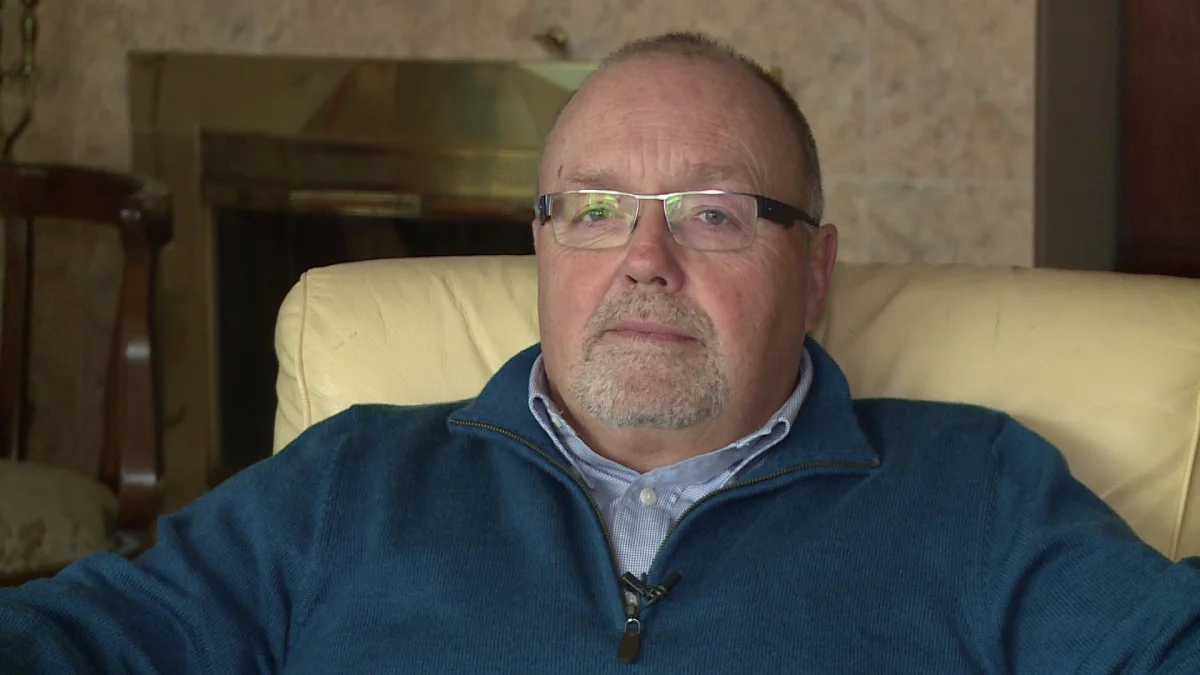Meet Tim
It was some time around Thanksgiving 2020. Tim Westhaver was in Halifax buying paint for his cottage when the hospital called and asked him to come in.
“I ended up in there for eight days because they had remotely sensed that my implantable cardiac defibrillator (ICD) — a surgically implanted device that keeps the heart beating regularly — was not working properly,” he recalls.
Tim lives with an inherited heart disease called hypertrophic cardiomyopathy (HCM).
Abnormal genes have thickened his heart muscles, interfering with its electrical rhythms and making it more difficult for the organ to pump blood. There are few visible symptoms. The most devastating consequence is sudden cardiac death.
During his lifetime, Tim has lost several of his family members to HCM. His mother died of it when he was six weeks old, his oldest brother passed away as an adult, and two nephews died suddenly.
When Tim, an avid marathoner, started feeling shortness of breath, dizziness, and nausea, doctors couldn’t understand what was going on with him, an otherwise healthy man. “I was told there was nothing to worry about,” he says.
Going to funerals of close relatives and family members made Tim take matters into his own hands.
He got himself and his two children genetically tested in their late teens.
All three have HCM. All have ICDs.
In hindsight, almost two decades after he got tested, he says that a network like CANet would have “saved him a lot of grief.”
“I had to take things into my own hands regarding my children,” Tim says, explaining his lack of confidence in doctors at a time when more information and support from the medical community would have helped.
Several years ago, Tim met Dr. Ratika Parkash, CANet Network Investigator and Associate Scientific Director, Electrophysiologist at Halifax’s QEII Health Sciences Centre, and Professor at Dalhousie University. “She understood me and my family’s disease,” he says. “She seemed like a person who cared and understood the seriousness of implanting defibrillators in my children and me.” Dr. Parkash invited Tim to a CANet general meeting, and later, he was asked to become part of a Patient Advisory Committee for CANet’s secure interactive digital health platform called “VIRTUES.”
VIRTUES or Virtual Integrated Reliable Transformative User-Driven E-health System is a virtual care and data platform developed by CANet that securely stories electronic health records accessible to patients and caregivers and utilized for treatments and therapies.
With VIRTUES, patients have access to view up-to-date information about their ICD/pacemaker and receive communications about transmissions. Patients also receive medical monitoring and care as implantable devices, such as Tim’s, are integrated into a centralized platform. “Remote-sensing – and by that extension, VIRTUES – is great because it allows us to catch a problem early rather than trying to rush to a hospital when it may be too late,” Tim says. “The whole idea of CANet, for me at least, is that it has levelled the playing field for people in Canada who live in remote places, far away from hospitals.”
“CANet enlightened me to all sorts of treatment and monitoring options available across Canada for my children and me. The idea of a network sharing information was more vital than I thought it would ever be,” Tim says of his experience being a Patient Partner with CANet. “I do believe that sharing information is beneficial to everyone in the long run. CANet has the potential to break down silos amongst medical professionals in the country.”
For someone living with HCM, the most important thing, according to Tim, is to get a doctor who understands the disease.
“I recommend Ratika,” he says. “She understood what a strain it was for me but also my family. She took it seriously.”
Listen to your body, Tim recommends. The disease is not always progressive and presents itself differently in everyone.
“Talk to a mental health professional,” Tim advises.
“I sat in an examination room at Toronto General Hospital with my son – who was representing Nova Scotia at the National Lacrosse Championship – when the doctor told him that he could no longer play sports.” Tim recollects. “I was a marathon runner. Now, I try to get my 10,000 steps a day.”
His parting advice is, “Don’t live your life by other people’s standards. Live it by yours.”

